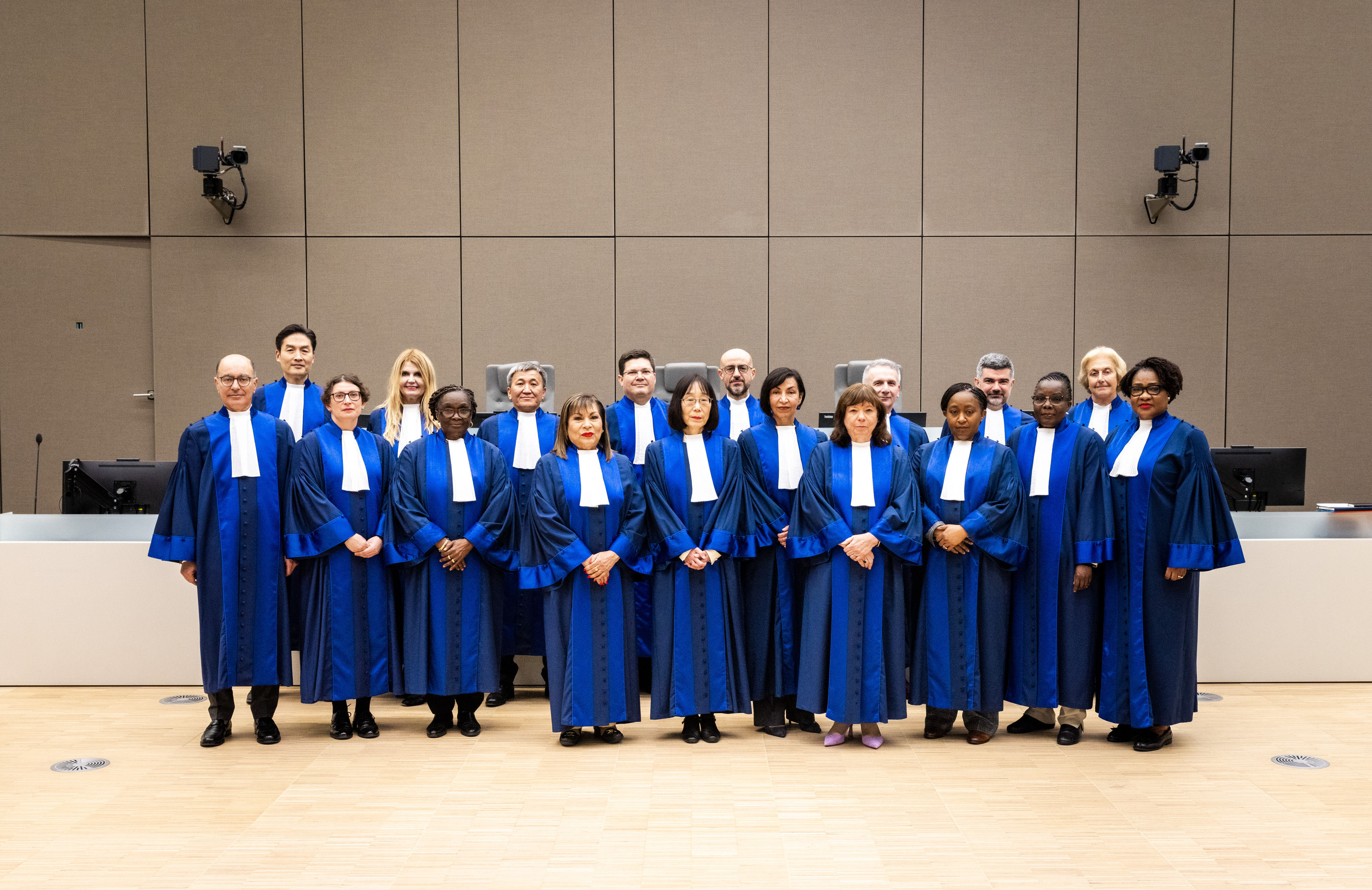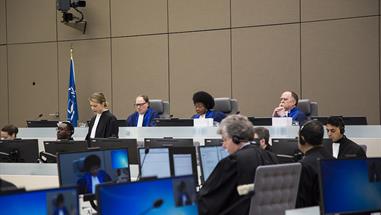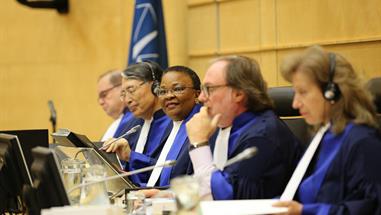The ICC's 18 judges are elected by the Assembly of States Parties for their qualifications, impartiality and integrity, and serve 9-year, non-renewable terms. They ensure fair trials and render decisions, but also issue arrest warrants or summonses to appear, authorize victims to participate, order witness protection measures, and more. They also elect, from among themselves, the ICC President and two Vice-Presidents, who head the Court.
Also in this section
Image

Image

Pre-Trial judges
- Generally 3 judges per case
- Decide if there is enough evidence for a case to go to trial, and if so, confirm the charges and commit the case to trial
- Issue arrest warrants or summonses to appeal
- Preserve evidence, protect suspects, and safeguard information affecting national security
- Guarantee the rights of all persons during the investigation phase, including suspects, victims and witnesses
- Grant protection measures for victims and witnesses
- Appointing counsel or other support for the defense
- Ensure that a person is not detained for an unreasonable period prior to trial due to inexcusable delay by the Prosecutor, and decide on requests for interim release pending trial
- Authorise the Prosecutor to open investigation proprio motu, or to continue an investigation when a State requests that the Court defer to national investigations, or to take steps in an investigation without State cooperation
- Review the Prosecutor's decision not to investigate where there is a referral
- Decide on a challenge to jurisdiction or the admissibility of a case
- Documents and decisions related to Regulation 46(3) of the Regulations of the Court
Image

Trial judges
- Generally 3 judges per case
- Conduct fair trials
- Decide if there is enough evidence to prove beyond a reasonable doubt that the accused is guilty as charged
- Sentence those found guilty, and pronounce the sentence in public
- Order reparation to victims, including restitution, compensation and rehabilitation
Image

Appeals judges
- Five judges
- Handle appeals filed by Parties
- Confirm, reverse or amend a decision on guilt or innocence or on the sentence and, if necessary, order a new trial before a different Trial Chamber
- Ensure that the conviction was not materially affected by errors or by unfairness of proceedings
- Ensure the sentence is proportionate to the crimes
- Confirm, reverse or amend an order for reparations
- Revise the final judgment of conviction or the sentence, for example, if new evidence is later found
- Hear appeals on a decision on jurisdiction or admissibility, interim release decisions and interlocutory matters